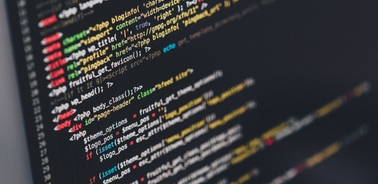- Home
- We Are Law School
- News
- From The Code Of Hammurabi To The Binary Code: Why Lawyers Should Learn To Code
From the Code of Hammurabi to the binary code: Why lawyers should learn to code

There is growing debate as to whether lawyers and legal practitioners need to learn to code or not. Is this a trend or a profound change in the legal industry?
Historically, law has been a code, but today the codes of law are different in nature. From the Babylonian code of law and the Code of Hammurabi, to the computer protocol code behind smart contracts, law and code have are, and have always been linked.
The technological disruption has rapidly become a driver of innovation in civil society. We are currently facing a digital transformation, a profound revolution of all businesses and organizations, processes, competencies and economic models, which leverages the changes and opportunities of the new economy. The digital transformation affects all sectors and every aspect of companies. In this new reality, all industries are affected and there are no reasons why lawyers’ shouldn´t be part of this profound transformation.
Digital transformation provides the legal industry with unknown opportunities for creating value. Several years ago, it took Fortune 500 companies an average of 20 years to reach a billion-dollar valuation. Today’s digital start-ups are getting there in less than 4 years. These rapid advances in digital technology are redefining not only society but also the legal industry, pressured to catch up with the tech scenario.
The big leap
The moment for companies to disrupt the traditionally conservative legal market at every level and from every angle has arrived. In the last years, we have seen interesting legaltech developments that are accelerating the digital transformation of the legal industry.
However, the big change in the legal industry isn´t accomplished by lawyers and Firms but by legal tech vendors. They are the ones that are racing to develop tools for lawyers that shorten the profound gap between legal professionals and the clients’ needs. In fact, tech businesses conducted by non-lawyers are the engines that are leading the digital transformation in the legal industry. This reality is a result of the lack of involvement of lawyers in business and in technology, which is not acceptable, not anymore. Lawyers must rise to the challenges; if they do not do so, non-lawyers who have the right skills to fulfill the clients’ requests will be the ones performing the legal work.
If law is becoming computable, then lawyers need to code. Learning to code will give lawyers an advantage against competitors who are not at that level.
Technology will have an increasing effect on how lawyers practice; soon contracts shall be ‘smart contracts’, litigation shall be 100% online, judges shall be robots, etc. If law is becoming computable, then lawyers need to code. Learning to code will give lawyers an advantage against competitors who are not at that level. Coding is an essential skill for lawyers in the 21st-Century. Those lawyers who cannot code in the next years will not be able to deal with their clients' demands and will probably be overridden, and therefore, relegated from the nearly coming legal tech ecosystem.
That being said, coding is not only a question of skills; it is a question of attitude. Tech and coding will help lawyers understand very complex matters and discuss them with clients, thus adding value for clients and lawyers alike. It is imperative that lawyers learn to code, otherwise, they will be replaced by experts who are trained to do so.
Article written by Alejandro Touriño, Co-Director of the Master in Legaltech for Synergy Magazine, Elsa´s Magazine.